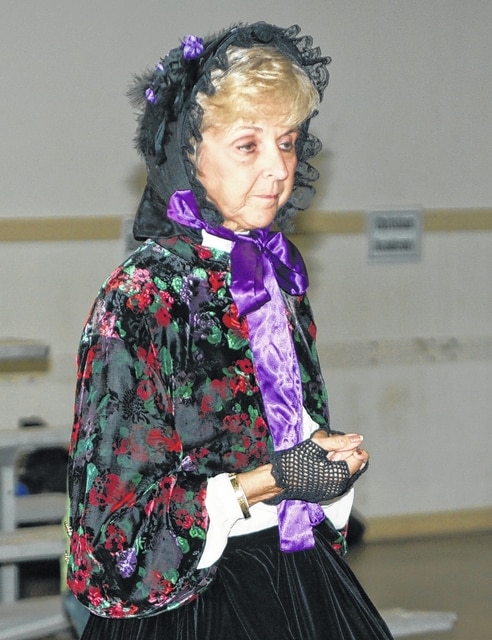
SIDNEY — Linda DeVelvis, noted local educator, author and history enthusiast, will be one of the featured presenters during the upcoming Civil War Living History Weekend. As she has for more than 20 years, DeVelvis will portray a Civil War nurse, discussing medicine and medical treatment during the conflict.
Interestingly, the main cause of death during the American Civil War was not from battle wounds but rather from disease. Thousands of soldiers and citizens died from diseases like typhoid, tuberculosis, mumps, measles and dysentery. These diseases spread like wildfire in the poorly sanitized and crowded camps of both the Union and Confederate Armies.
Civil War doctors and surgeons, nick-named “sawbones” due to the numerous amputations they performed, were inadequately trained and in many cases not qualified. However many worked bravely and did the best job they could, often working dangerously close to the front lines.
For medical practitioners in the field during the Civil War, germ theory, antiseptic (clean) medical practices, advanced equipment, and organized hospitalization systems were virtually unknown. Medical training was just emerging out of the “heroic era,” a time where physicians advocated bloodletting, purging, blistering (or a combination of all three) to rebalance the humors of the body and remedy the sick.
Physicians were encouraged to treat diseases like syphilis with mercury, a toxic treatment, to say the least. These aggressive “remedies” of the heroic era of medicine were often worse than patients’ diseases; those who overcame illness during the war owed their recoveries less to the ingenuity of contemporary medicine than to grit and chance.
Luck was a rarity in camps where poor sanitation, bad hygiene and poor diet bred disease, infection, and death. From the stench of putrefying flesh wafting through unsanitary and crowded camps to the unglamorous illnesses of syphilis and dysentery, our modern disgust toward Civil War medical practices is generally justified.
However, while “advanced” or “hygienic” may not be terms attributed to medicine in the nineteenth century, modern hospital practices and treatment methods owe much to the legacy of Civil War medicine. Of the approximately 620,000 soldiers who died in the war, two-thirds of these deaths were not the result of enemy fire, but from disease. Combating disease as well treating the legions of wounded soldiers pushed Americans to rethink their theories on health and develop efficient practices to care for the sick and wounded.
A 1971 graduate of Bowling Green State University, DeVelvis earned her Master’s Degree from Wright
State University in 1982 and her National Board Certification in 1999. Now retired from active teaching, DeVelvis taught in the Sidney City Schools for 30 years.
Along with her husband Dave, she raised three children,found the time to write four children’s books, and is a longtime board member of the Shelby County Historical Society. She received an individual achievement award from the Ohio Humanities Council for her writing.
In addition to her first-person portrayal of a Civil War nurse, DeVelvis also frequently acts the part of a pioneer school teacher. The character of the nurse and the teacher were originally developed for her classroom before she began portraying the characters for the general public.
DeVelvis’ presentation on Civil War medicine will take place Sunday afternoon, Sept. 18, at 12:30 p.m. Her appearance and the other educational programs offered during the event will be held in a tent located at Wagner Glade in Tawawa Park.


